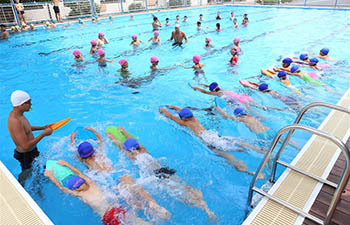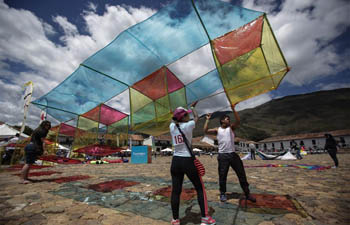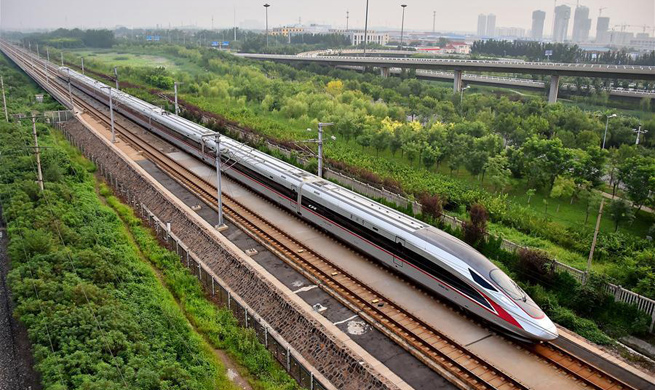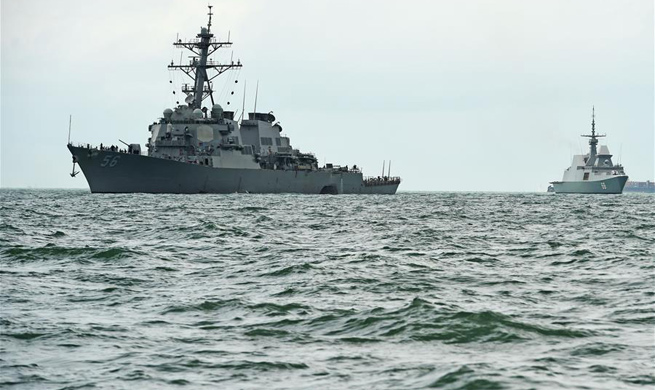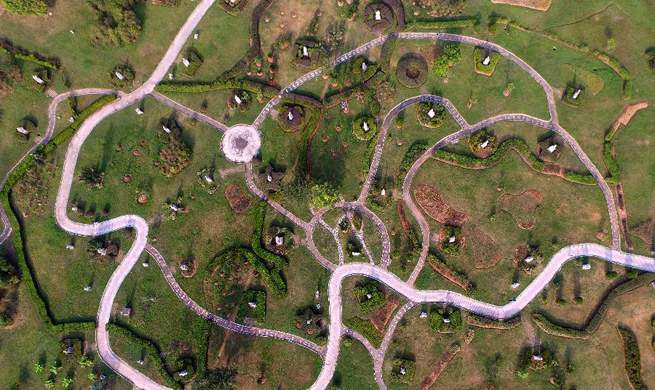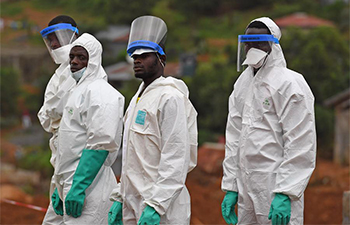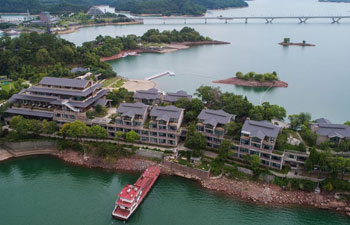by Burak Akinci
ANKARA, Aug. 21 (Xinhua) -- The Syrian crisis and Kurdish issues would dominate the agenda of meeting between U.S. Defense Secretary James Mattis and his Turkish counterpart along with Turkish President Recep Tayyip Erdogan, according to Turkish and U.S. sources.
Mattis will meet with the Turkish ministers of defense, Nurettin Canikli, foreign affairs, Mevlut Cavusoglu, and Erdogan, who defines Turkish foreign policy.
Turkey's relationship with the United States is considered as the worst it has seen in more than a decade while Ankara has warmed ties with Russia and is considering buying the Russian-made S-400 air defense system, which would be a slap in the face of the NATO alliance.
Mattis would emphasize the steadfast commitment of the United States to Turkey as a NATO ally and strategic partner, seek to collaborate on efforts to advance regional stability and look for ways to help Turkey address its legitimate security concerns, including the fight against the outlawed Kurdistan Workers' Party (PKK), said Rob Manning, director of the U.S. defense press office.
The PKK, a listed terrorist organization by Turkey and the United States, has waged a 30-year-long armed and bloody insurgency against the Turkish government that re-ignited in July 2015 after an Islamic state (IS) suicide bombing killed 33 pro-Kurdish activists in southeastern Turkey.
Since then, the International Crisis Group, an independent NGO, has confirmed 3,000 deaths, mostly PKK militants, and more than 400 civilians in violent clashes.
Ankara links the PKK to the Peoples' Protection Units (YPG), a group comprised of mostly Kurds, who the United States is supporting in the war against IS in Syria. The YPG and its political wing, the Democratic Union Party (PYD), deny any organic links to the PKK, and Washington does not consider them as terrorist groups as well.
Violence from the Turkey-PKK conflict has claimed an estimated 45,000 lives since 1984, costing Turkey billions of dollars.
The United States has provided arms to Kurdish fighters in Syria, which the Turkish government believes will end up in the hand of PKK fighters on Turkish soil against security forces.
"The actual issue is not giving weapons. Will you (the United States) be able to get those weapons back ... this creates a serious danger for the future of Turkey and Syria," Cavusoglu said recently.
The top diplomat also said that "Russia understands Turkey's stance on YPG better that the United States," voicing renewed dissatisfaction on Washington's decision to arm the group at Turkey's border and underlining the blossoming relations with Moscow, irritating the North Atlantic community.
A Turkey diplomatic source said Turkey would have "a frank conversation" with the U.S. official to convey an honest belief that "supporting militarily a terrorist organization is a bad thing in this region even if it is for pragmatic reasons."
Meanwhile, Mattis voiced his support in Turkey's fight against PKK "as fellow NATO member," saying that PKK, a named terrorist group, is conducting an active insurgency in Turkey, and has orchestrated the killing of innocent Turkish civilians and Turkish soldiers.
Mattis made the remarks in London after meeting with Turkish Prime Minister Binali Yildirim in May.
However, experts are not convinced that Washington will cut its ties with the YPG once IS is beaten in Syria. "The U.S. support for YPG is a long term investment," said Can Acun, a researcher at the Ankara based think tank SETA, Foundation for Political, Economic and Social Research, in a interview by broadcaster TRT, adding that YPG will serve Washington's purposes there "as the United States is planning that Kurdish fighters would control larger territories after the seizure of Raqqa."
The United States military has tried to assure Turkey that arms and equipment will be metered out in an as-needed basis and will be accounted for, only going to vetted partnered forces to be used against IS.
Earlier in August, the U.S. ambassador to Turkey denied media reports that the United States had supplied tanks to the YPG, but the Turkish press claims on a daily basis that new batches of arms and equipment are being shipped regularly to northern Syria.
Prior to being in Ankara, Mattis will travel to Jordan and meet with Jordanian King Abdullah II. He will head to Ukraine after visit Ankara, becoming the first Pentagon chief to visit Kiev in a decade.
The chief of Pentagon's Ankara visit comes days after an agreement concluded between Turkey and Iran to boost their military cooperation during an "unprecedented" visit to the Turkish capital of Iran's army chief as the head of a high-level delegation.
The two regional rivals seek to reconcile their differences over Syria and to coordinate efforts against Kurdish militants and Kurdish separatism, namely the independence referendum to be held in September by the Iraqi Kurdish region to which both countries are hostile.
According to analysts, the U.S and Russia, who are militarily on the field in Syria in opposing camps, are seeking ways to end the conflict, while Tehran and Ankara feel that deals are cut behind their backs, therefore uniting efforts to stay in the game.
Aside differences on the Syrian war, a major rift in the U.S.-Turkey relationship is Washington's refusal to extradite the self-imposed exiled Muslim cleric Fethullah Gulen, who the Ankara government accuses of masterminding last year's failed coup.
After the coup attempt, an anti-Western sentiment has gained popularity in Turkey, especially against the United States, criticizing leniency towards the exiled cleric and his network.
Gulen, who lives in the United States since 1999, denies the charges. Turkey has launched a massive crackdown, invariably charging tens of thousands of Gulen supporters with membership of a terrorist organization.
Muslim-majority Turkey has NATO's second-largest standing military and its Incirlik Air Base is critical to U.S. military operations in the Middle-East, serving as a base to launch operations with coalition countries against IS in Syria.
Ankara will also host in the coming days Russian army chief of staff to discuss regional issues with a special priority to the Syrian crisis.







